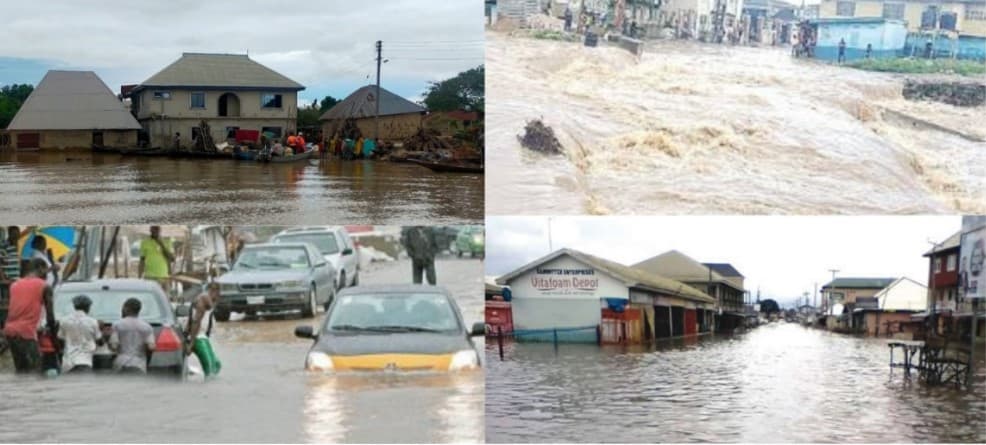The Federal Government has cautioned states and local governments to prepare for higher river flooding as the country enters the rainy season.
Prof. Joseph Utsev, Minister of Water Resources and Sanitation, issued the warning during a news conference in Abuja on Thursday.
He stated that precautionary measures should be taken to avoid potential tragedies from such events.
According to Utsev, states have been informed as a result of recent reports noted in the Nigeria Hydrological Services Agency’s (2024 Annual Flood Outlook).
He stated that state governors have received precise projections and preventative measures tailored to their respective regions.
According to him, there are major flood hazards in 148 local government areas spanning 31 states, including Adamawa, Akwa-Ibom, and Anambra.
The prognosis, divided into three scenarios, predicted increased flood risk from April to November, with the most severe floods occurring between July and September.
"Over eleven states and the FCT have already experienced varied amounts of floods since April, causing casualties and property damage.
“Notable events include the floods in Trademore Estate, FCT, which resulted in two deaths and severe property damage,” he added.
Utsav emphasized the need for states and local governments to step up flood control efforts, including clearing clogged drainage systems, transferring inhabitants from flood-prone locations, and building flood barriers.
He predicted river floods from key rivers such as the Niger and Benue and urged continual monitoring and preemptive actions.
The minister stated that more rainfall could intensify the current cholera outbreak, which has resulted in 63 deaths and 2,102 probable cases.
He announced the formation of a presidential committee to handle cholera and other waterborne diseases associated with flooding.
Utsav stated that a revised 2023 flood study resulted in the development of a new committee, chaired by Vice President Kashim Shettima, to address larger catastrophe management issues like erosion and desertification.
He stated that the team had produced a report that had been accepted by the National Economic Council, with implementation plans expected to begin soon.
He noted that the Clean Nigeria Use the Toilet campaign and the activation of national laboratories were part of a larger effort to improve public health and sanitation.
Mr Clement Nze, Director General of NIHSA, emphasized the Federal Government’s consultative role, adding that enforcement and local action were under state jurisdiction.
He stated that the Federal Government would continue its efforts to build buffer dams, such as the Lagdo Dam in Cameroon, to reduce flood risks.
According to the National Insurance Highway Safety Administration’s 2024 Annual Flood Outlook, 148 local government areas (LGAs) in 31 states are at high risk of flooding.
Adamawa, Akwa-Ibom, Anambra, Bauchi, Bayelsa, Benue, Borno, Cross River, Delta, Ebonyi, Edo, Imo, Jigawa, Kaduna, Kano, Katsina, and Kebbi are among the states affected.
Others include Kogi, Kwara, Lagos, Nasarawa, Niger, Ogun, Ondo, Osun, Oyo, Plateau, Rivers, Sokoto, Taraba, and Yobe.
